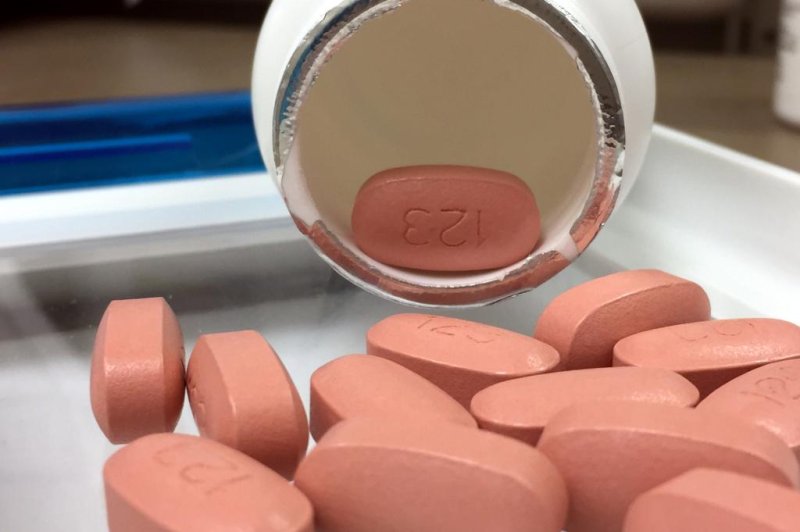Antiretroviral therapy, or ART, has helped extend the lives of millions of HIV-positive people, but many don't like the stigma, inconvenience or expense of taking a daily pill. Photo by NIAID/Flickr
June 7 (UPI) -- Antiretroviral therapy, or ART, has helped to extend the lives of millions of HIV-positive people, but many don't like the stigma or inconvenience of taking the daily pill, a new study says.
That's why health experts have prioritized research to develop a therapy that can replace ART and still achieve HIV remission, according to a study published Thursday in JAMA.
"Because we've been so successful [with ART], there is a substantial proportion of people who are doing well who feel they want to take it to the next step. They don't want to have to take an anti-retroviral drug every day, for a number of reasons." Anthony S. Fauci, director of the National Institute of Allergy and Infectious Diseases, told UPI.
Among the reasons are pill fatigue, side effects from the medication and the expense of taking medication for life -- on top of just having to take a pill for the rest of their lives.
"Many of them feel that it's almost a personal stigma to remind them every day they are HIV infected and they have to take a pill to prevent the virus from rebounding," Fauci said.
While the researchers have faced roadblocks in coming up with an ART-free HIV remission therapy, one approach has shown promise, with the NIAID announcing it's new focus on Thursday.
A passive transfusion of multiple antibodies can likely work similarly to ART pills to keep HIV cells from regenerating, according to Fauci.
"We know that we have an array of broadly neutralizing antibodies that if you passively transfer the antibodies into an individual, you can suppress the virus similarly to giving somebody ART," Fauci said. "When you give the passive transfusion, it lasts for a considerable period of time, a month or two. If you modify the antibody, it lasts even longer."
Fauci and his researchers considered several methods of eradicating HIV, and only a stem cell transplantation approach had any success. But transplantation has only worked in two cases.
Plus, he said, the stem cell approach carries a heavy price and is impractical to deliver on a global scale to people living with HIV.
"That has been very problematic and we haven't been very successful in doing that," Fauci said. "Some of the approaches are not scalable to the 36 million people in the world."
The passive transfer method would involve injecting two retroviral antibodies into HIV patients every four to six months a year. Fauci says this won't eradicate the virus, and like any therapy will have some side effect.
The treatment, however, would work to suppress the virus without requiring daily treatments.
"There are a few laboratories in the country that are doing the passive transfer of antibodies. We found out that when you give one antibody, it's ok but not great. When you give two, you really get a powerful effect," Fauci said.
"I would say that probably by the end of next year, we will know if it works or not, then it will get rolled out depending on the enthusiasm for it within the community of people who are infected."















